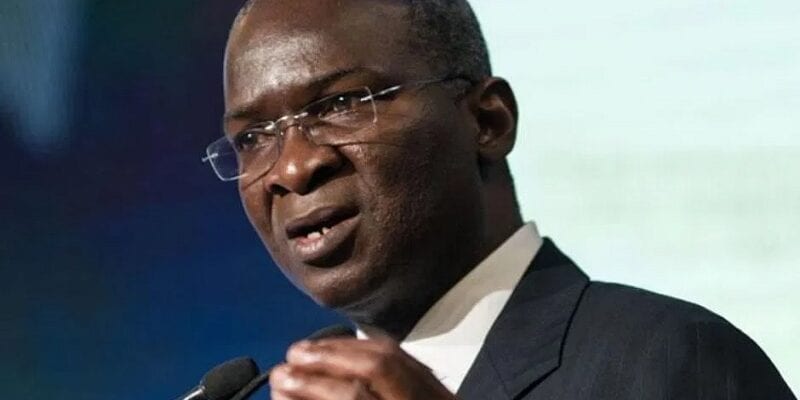The Federal Government’s expenditure on road projects nationwide has increased from about N18 billion in 2015 to about N400 billion this year, indicating a massive rise of about 2,122% within the period under review.
This disclosure was made by the honourable minister of works and housing, Mr Babatunde Fashola at a forum organized by the News Agency of Nigeria to evaluate his ministry’s performance in the last six years.
According to the minister, the increased investment in infrastructure by the government has been positively impacting various economic activities nationwide, as more wealth and job opportunities have been created. This is sequel to the award of over 850 contracts, which birthed the construction of about 13,000 kilometres of roads.
Elucidating his points, Fashola said: ‘’President Muhammadu Buhari’s commitment to improving infrastructure sits squarely at the centre of the progressive ideal to improve the human condition. This connects many more doors and it is the most legitimate way for distributing money across board.’’
In addition, the minister noted that the expansion and boosting of infrastructure in the country is part of the Federal Government’s Economic and Recovery Growth Plan, geared towards creating a globally competitive economy. Laying more credence to this, Fashola said: “Infrastructure is not an isolated idea, it is for the purpose of improving the human condition, weather it is business, healthcare, airport experience or road travel. From the time you begin to sign a contract, you begin to engage professionals.
“They have to produce bank guarantees, prior to that the road has to be designed and cognisance of the road has to be taken before you do a design. Also the alignment has to be drawn, so by the time you are getting to the contract so many professionals have played their roles and that’s what infrastructure does. It kick-starts a series of positive economic exchanges and by the time you get to construction, you are reaching the bottom of the pyramid.
“You are reaching out to labourers, who earn between N2, 000 and N3,000 daily, depending on which part of the country. So, when you do that on a road that takes five to six years to construct, you are just creating wealth.
READ: EFCC recovers N6 billion, 30 estates, 32 automobiles in 3 months – Bawa
“Those people who are working need nutrition, they need nourishment, water, food and that’s another activity and we haven’t even started to talk of the building materials, excavating, mining, laterite, sand, gravel, stone then transporting them.
“This is the ecosystem we are talking about and that’s why I always ask our staff to do research and check if they have ever seen any governor, prime minister or president who will omit infrastructure in his inaugural speech. Nobody does it.
“This is the heart and soul of every economy and this is what the president has done and today we have 13, 000 kilometres of road under construction or rehabilitation across Nigeria’s federal highways.
“That number keeps moving because more are in procurement. The 13,000 kilometer of roads and bridges translate to 850 different contracts so you can see an indication of different contractors employed.’’
In conclusion, the honourable minister noted that some contractors have more than one job, especially the big guns like Julius Berger which is currently in Odukpani and Calabar. He added that: “The Chinese firm, CCECC is in places like Enugu-Port Harcourt highway, Yenagoa and the Kano-Katsina highway.
“This has made the budgetary commitments to move from 18 billion in 2015 to nearly N400 billion in 2021, so you will see how this is impacting the economy.
“Other economic activities are also being impacted like the petroleum sector as more construction trucks make use of more lubricants, diesel, bitumen and asphalt.“So, you cannot see our achievements in terms of roads alone. Our achievement is more of an ideology. It is a process and we want to see results,’’ Fashola said.

